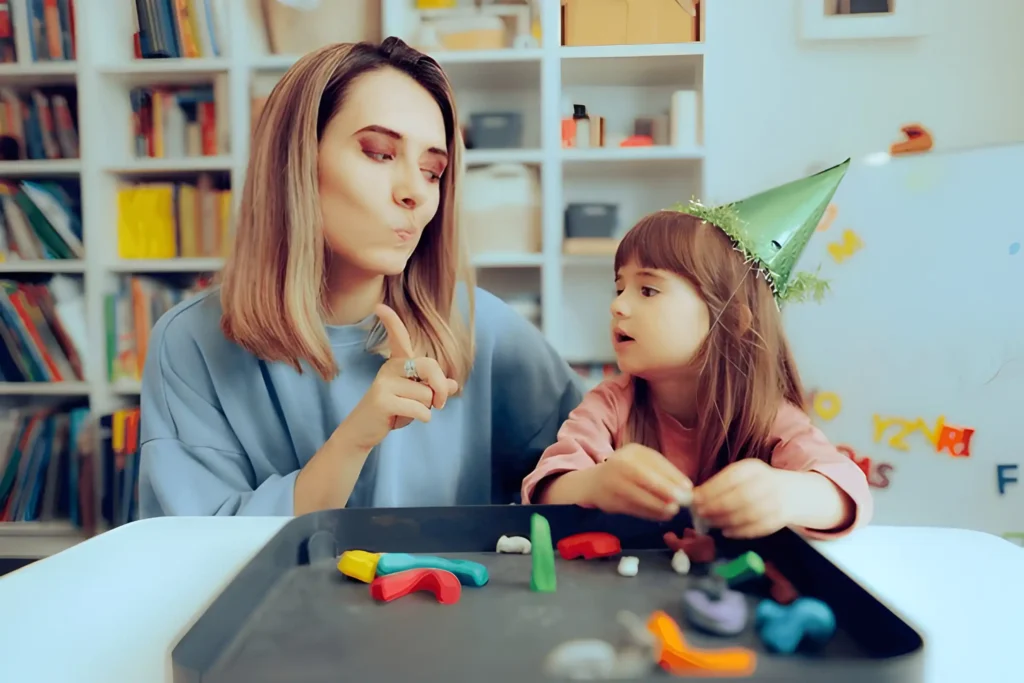Parenting has always been a topic of passionate discussion. As society evolves and new research emerges, parents find themselves grappling with the best ways to raise their children. A particularly enduring debate is that between authoritative parenting vs permissive parenting, two contrasting styles that offer very different paths for a child’s upbringing. Which one leads to a more successful, well-adjusted child? Is there truly a “best” way?
These are the questions parents and experts alike have been asking for decades, and the answers remain nuanced, revealing that no one-size-fits-all solution exists. To understand what might be best for your child, it’s essential to dive deep into the core characteristics, effects, and implications of each parenting style.
What is Authoritative Parenting?

Authoritative parenting is often regarded as the golden standard of parenting styles. Rooted in a balanced approach, it combines high expectations with emotional support. Authoritative parents are firm but fair, setting clear boundaries while still valuing the individuality and independence of their children. This approach focuses on fostering a strong parent-child relationship based on trust, communication, and respect.
Key Characteristics of Authoritative Parenting
Authoritative parenting involves a delicate balance of control and freedom. Unlike authoritarian parents who demand blind obedience, authoritative parents encourage autonomy. Some defining traits of this approach include:
- Consistent yet flexible rules: Boundaries are clearly defined, but there is room for negotiation and adjustment as the child matures.
- Open communication: Authoritative parents frequently engage their children in discussions, valuing their opinions and feelings.
- Responsiveness to needs: These parents are attentive to their child’s emotional and developmental needs, offering warmth and guidance.
- Encouragement of independence: Children are encouraged to think for themselves, make decisions, and learn from mistakes.
How Authoritative Parenting Influences Child Development
Children raised by authoritative parents tend to excel in multiple areas of life. Studies have consistently shown that these children exhibit higher levels of social competence, emotional regulation, and academic success. This is largely because the authoritative approach equips children with both the structure and freedom needed to thrive.
By providing clear expectations and nurturing support, authoritative parents help their children develop:
- Self-discipline: Understanding rules and consequences allows kids to internalize appropriate behavior.
- Confidence: The balance of praise and constructive criticism helps children develop a strong sense of self-worth.
- Social skills: Through positive reinforcement and effective communication, children learn how to interact respectfully with others.
Psychological Benefits of Authoritative Parenting
The psychological advantages of authoritative parenting cannot be overstated. Children raised in this environment tend to have higher self-esteem, greater resilience, and a more positive outlook on life. Because authoritative parents foster a secure emotional attachment, their children often feel safe exploring their world and expressing their feelings.
In adolescence, these children are more likely to make responsible decisions and avoid high-risk behaviors such as substance abuse. They also tend to cope better with stress and exhibit fewer mental health issues, including anxiety and depression.
Setting Limits and Nurturing Autonomy: The Authoritative Approach

One of the most significant strengths of authoritative parenting is its ability to set limits while simultaneously nurturing autonomy. This dual focus enables children to understand the importance of rules and boundaries without feeling stifled. Authoritative parents often involve their children in the decision-making process, asking for input on rules and discussing consequences. This approach teaches responsibility and critical thinking, fostering independence.
For example, an authoritative parent might set a curfew but also be open to adjusting it based on their child’s maturity and trustworthiness. This flexibility signals to the child that their opinion matters, helping them develop a sense of ownership over their actions.
Common Challenges in Authoritative Parenting
Despite its many advantages, authoritative parenting can be challenging to maintain consistently. Finding the balance between firmness and flexibility requires patience, self-awareness, and adaptability. Parents may struggle with:
- Enforcing rules without being too lenient or too strict.
- Navigating conflicts, especially during adolescence, when children may test boundaries more frequently.
- Being emotionally available, which requires time and energy that some parents may find difficult to provide, particularly in stressful or busy periods of life.
Nevertheless, the long-term rewards of sticking with an authoritative approach often outweigh these short-term challenges.
What is Permissive Parenting?

In contrast to the structured approach of authoritative parenting, permissive parenting is characterized by leniency and a hands-off attitude. Permissive parents tend to be nurturing and warm but often avoid setting strict rules or enforcing discipline. They believe in giving children significant freedom to explore their world without imposing many boundaries, aiming to minimize conflict and foster a more relaxed, stress-free environment.
Permissive parents prioritize their child’s happiness and emotional well-being, sometimes at the expense of structure and discipline.
Key Characteristics of Permissive Parenting
Permissive parents typically display the following traits:
- Few rules and guidelines: While permissive parents may have some expectations, they are often inconsistent in enforcing them.
- Highly responsive but low on demands: Permissive parents are highly involved in their child’s life but do not expect much in terms of responsibility or behavior control.
- Child-led decision making: Permissive parents allow their children to make most decisions without much parental input or restriction.
- Avoidance of confrontation: Permissive parents tend to shy away from discipline or conflict, preferring to let things slide.
How Permissive Parenting Influences Child Development
The developmental outcomes of permissive parenting can be mixed. On the positive side, children of permissive parents often feel loved, supported, and free to explore their interests. However, they may also struggle with self-discipline and authority.
Without consistent rules, children may:
- Struggle with boundaries: A lack of structure can lead to difficulties in understanding limits and responsibilities.
- Exhibit impulsive behavior: Permissive parenting can result in impulsivity and poor decision-making due to a lack of experience with consequences.
- Face academic challenges: Research has shown that children of permissive parents are more likely to experience academic difficulties as they may lack the self-discipline and motivation fostered by more structured environments.
Permissive parenting may also affect emotional regulation, as children do not always learn to cope with disappointment or frustration when they do not face consistent limits.
The Psychological Impact of Permissive Parenting
While permissive parents often believe that minimizing rules and maximizing freedom will lead to happier, more independent children, the psychological effects of this approach can be less than ideal. Studies have shown that children raised in permissive households may experience a range of emotional and behavioral issues.
Without the guidance of firm boundaries, children may struggle with emotional self-regulation, leading to challenges like anxiety, mood swings, and low frustration tolerance. The absence of clear expectations and consequences can also contribute to feelings of insecurity, as children may lack the consistent framework they need to feel safe and supported.
Additionally, permissive parenting may foster poor coping mechanisms. Children who aren’t given the tools to handle disappointment or navigate conflicts might develop an unrealistic expectation that life will always accommodate their desires. As a result, they could struggle to manage stress or setbacks in adolescence and adulthood.
Freedom vs. Boundaries in Permissive Parenting
One of the central dilemmas in permissive parenting is the balance between freedom and boundaries. Permissive parents often prioritize their child’s freedom to make choices, believing that this will lead to greater creativity, independence, and self-confidence. While this is a noble goal, the reality is that children, especially younger ones, need structure to feel secure.
A lack of boundaries can lead to confusion, as children are left unsure of what is expected of them. This can result in feelings of insecurity or a tendency to push limits in unhealthy ways, such as by testing how far they can go before receiving any pushback. Though permissive parents may avoid conflict in the short term, this approach can create greater difficulties down the line as children struggle to cope with authority or responsibility in other areas of their lives, such as school or work.
Common Pitfalls of Permissive Parenting
Permissive parents, despite their good intentions, often encounter several pitfalls. These include:
- Lack of discipline: Without consistent rules, children may not learn how to manage their impulses or understand the consequences of their actions.
- Over-indulgence: Permissive parents might prioritize their child’s immediate happiness over long-term growth, which can lead to entitlement.
- Difficulty setting limits: Because permissive parents avoid conflict, they may find it challenging to establish clear expectations or enforce boundaries when necessary.
- Strained relationships: As children grow older and face real-world responsibilities, they may feel ill-equipped to handle them, leading to conflicts or estrangement from parents.
While permissive parenting can foster a warm, close relationship in early childhood, the lack of structure can undermine a child’s development of essential life skills.
Examples of Permissive Parenting in Everyday Life
Permissive parenting often plays out in everyday scenarios where indulgence takes precedence over discipline. For instance, a permissive parent might allow their child to eat junk food for dinner every night simply to avoid a tantrum or refuse to enforce a bedtime because they want the child to feel “free.”
Another common example is the failure to impose consequences for misbehavior. A permissive parent may, for instance, brush off a child’s rudeness toward others or failure to complete homework, rationalizing it as a “phase” the child will eventually outgrow. These patterns can lead to challenges in a child’s behavior and relationships with authority figures, peers, and even their own parents.
Authoritative vs. Permissive Parenting: Key Differences
When comparing authoritative parenting vs permissive parenting, it’s clear that these two styles offer vastly different approaches to child-rearing. Here are some of the major differences:
| Aspect | Authoritative Parenting | Permissive Parenting |
|---|---|---|
| Discipline | Firm, consistent, and reasonable | Lenient, with few enforced rules |
| Communication | Open dialogue, with mutual respect between parent and child | Lax communication, often child-led decisions |
| Emotional Support | High emotional warmth with clear expectations | High emotional warmth, with minimal demands |
| Boundaries | Clear and well-defined | Vague or inconsistent |
| Independence | Encouraged, but within the framework of established rules | Encouraged without much guidance or structure |
Authoritative parents seek to balance warmth and control, providing structure while also nurturing a child’s independence. In contrast, permissive parents emphasize freedom and emotional support but often struggle with setting necessary boundaries for healthy development.
Emotional Outcomes: Authoritative vs Permissive Parenting
The emotional outcomes of authoritative vs permissive parenting are stark. Children raised by authoritative parents are generally more emotionally resilient. They are equipped to handle stress, disappointment, and failure due to the balance of support and structure provided by their parents. These children often exhibit higher self-esteem and greater empathy toward others, as they have been raised in an environment where their emotions are valued, but they are also held accountable for their actions.
Conversely, children raised in permissive environments may face emotional challenges, such as increased anxiety or feelings of insecurity due to the lack of clear guidance. Without a consistent framework, they may struggle to develop emotional regulation skills, making it harder to manage strong emotions like anger or frustration. They may also become more dependent on external validation, as they have not learned to self-regulate or set their own boundaries.
Social Development: Authoritative vs Permissive Parenting
When it comes to social development, children from authoritative households often have a distinct advantage. The combination of clear expectations and emotional support enables them to navigate social situations more effectively. These children tend to be more cooperative, respectful, and capable of forming healthy, reciprocal relationships.
In contrast, permissive parenting can hinder social development. Children may struggle with understanding the concept of shared rules and mutual respect, as they are used to a more individualistic, indulgent approach at home. They may also have difficulty with self-regulation, leading to problems in group settings, such as at school or in extracurricular activities, where cooperation and adherence to rules are expected.
Impact on Academic Performance: Authoritative vs Permissive Parenting
Authoritative parenting is often linked to better academic performance. The structure, clear expectations, and encouragement of autonomy all contribute to a child’s success in school. Authoritative parents are likely to instill a sense of responsibility, motivate their children to complete assignments, and encourage persistence in the face of challenges. This helps children develop strong study habits, self-discipline, and time management skills.
Children from permissive households, on the other hand, may struggle academically. The lack of structure and discipline can result in poor time management, difficulty focusing, and an inability to cope with academic pressures. Without the experience of being held accountable for their actions, these children may lack the drive to meet deadlines, complete homework, or persevere through academic challenges.
Behavioral Outcomes: Authoritative vs Permissive Parenting
Behaviorally, children from authoritative homes tend to display more positive traits such as self-control, responsibility, and cooperation. They understand the importance of rules and consequences, which helps them navigate both home and school environments effectively.
In contrast, children raised with permissive parenting may exhibit impulsive behaviors. Without the experience of consistent boundaries, they may struggle with understanding limits, leading to behavior that is rebellious, attention-seeking, or disruptive. These behaviors can create challenges not only within the family but also in school settings, where they are expected to follow more structured guidelines.
Long-Term Effects: Which Style Prepares Kids for Adulthood?
Looking at the long-term effects of authoritative vs permissive parenting, authoritative parenting is generally seen as the better approach for preparing children for adulthood. Children raised in authoritative households tend to develop key life skills, such as responsibility, independence, and resilience, all of which are crucial for navigating adult life successfully. These individuals are often more adept at managing relationships, pursuing career goals, and handling life’s inevitable challenges.
Children raised with permissive parenting may face more struggles as they transition into adulthood. The lack of discipline and accountability in childhood can result in poor decision-making skills, difficulty coping with stress, and a lack of motivation. These individuals may find it harder to manage the demands of work, relationships, and other adult responsibilities because they have not been conditioned to operate within a structured, rule-based environment.
The Role of Culture in Parenting Styles
Culture plays a significant role in shaping parenting styles. In more collectivist societies, where family cohesion and respect for authority are paramount, authoritative parenting might take on a more communal approach, emphasizing harmony and group responsibilities. In these contexts, children may be expected to conform to family and societal expectations more closely, with parents placing a high value on obedience and respect for elders while still fostering independence within a clear framework of guidance.
On the other hand, permissive parenting is more commonly found in individualistic cultures, where personal freedom, self-expression, and independence are highly valued. Here, permissive parents may feel that allowing their children to make their own choices, without strict parental interference, fosters greater creativity and personal fulfillment.
FAQs
Is one parenting style better than the other?
While authoritative parenting is generally considered more effective in raising well-adjusted, responsible children, each child is unique. The best approach may involve adapting aspects of both styles to suit your child’s needs.
Can permissive parenting lead to behavioral problems?
Yes, children raised with permissive parenting may experience behavioral issues due to a lack of structure and clear consequences. This can lead to impulsivity, difficulty following rules, and challenges with authority.
How does authoritative parenting impact a child’s self-esteem?
Children raised with authoritative parenting typically have higher self-esteem because they are encouraged to be independent while still feeling supported by their parents. This approach fosters confidence and self-reliance.
Can parenting styles be mixed?
Yes, many parents blend different styles depending on the situation. A balance between structure and freedom can provide the benefits of both authoritative and permissive parenting while avoiding their drawbacks.
Does permissive parenting affect academic performance?
Permissive parenting can negatively impact academic performance because it lacks the discipline and structure needed to instill good study habits and responsibility.
How do culture and society influence parenting styles?
Parenting styles are often influenced by cultural norms. In individualistic societies, permissive parenting might be more prevalent, while collectivist cultures may lean toward more structured and authoritative approaches.
Conclusion: Authoritative Parenting vs Permissive Parenting
In the ongoing debate of authoritative parenting vs permissive parenting, the evidence strongly supports authoritative parenting as the more effective approach for raising well-rounded, emotionally secure, and socially competent children. Its balanced combination of structure, warmth, and flexibility prepares children for the complexities of life, equipping them with the tools they need to succeed both personally and academically.
However, there is no definitive “one-size-fits-all” solution. Every child and family dynamic is different, and sometimes a blend of both styles may be the best way to meet the specific needs of your child. Ultimately, the key is to remain attentive, responsive, and adaptable as a parent—continuously evolving your approach based on your child’s unique personality and developmental stage.






Trackbacks/Pingbacks